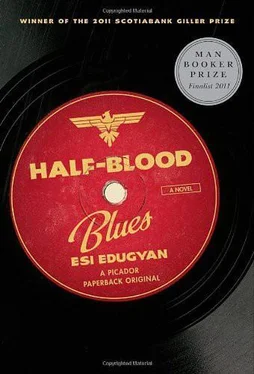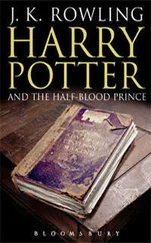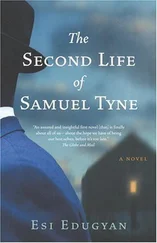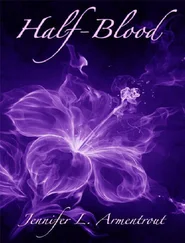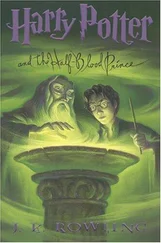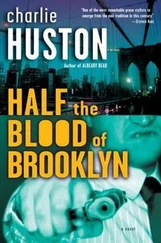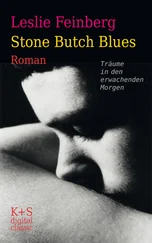‘I don’t know, Sid,’ he said. ‘I reckon we should just check in. We got the opening in less than three hours.’
‘The Brandenburg Gate,’ I said again to the cabbie in German. And to Chip, ‘It be alright. You just relax some. Sit back and see.’
Sure, I admit, some part of me was just trying to spite him. But I was curious, too. The city’s new hugeness shook me. It’d always been big, but not like this — the war opened great holes all those decades ago and I could see them even now. Green parks broke up the sea of cement, and so many concrete lots sat empty, all gone to weed. The streets looked wider than I remembered, too. As we passed the Berliner Dom, I got a vague itch all high up in my throat. My god. That vast pillared Renaissance church — it’d shrunk . Looked timid, apologetic, like a man brought down in the world.
Chip set one big grey hand on my seat and leaned forward as the cabbie turned up the broad avenue of Unter den Linden. ‘You know where we are?’ he said quietly.
A weird feeling rose up in me. Last I seen Unter den Linden, they torn out all them linden trees that gave the boulevard its name, tossed up white columns in their place, sanded the pavement so their damn jackboots wouldn’t slip.
All that was gone like it ain’t never been. I got a shock of recognition, of half-recognition, and heaven knows why but I recalled the night I seen my ma’s body laid out in her coffin. As I leaned low over her, her features seemed the same, arranged in familiar calm, but there was a trace of something not her, a watermark left by the undertaker. A whimsy to her lips, maybe. As if in dying she’d learned a whole new kind of irony, a contempt for what she’d left behind.
‘This ain’t our Berlin, Sid,’ said Chip.
I swallowed. Seemed like my damn voice wasn’t working right.
Chip put his hand on my shoulder. ‘It’s the years, brother. They wreck everything. For real.’
I nodded. ‘It’s lost something. I bet ain’t nobody even remember what it was.’
‘Except us, brother. Except you and me.’
I said nothing.
Chip leaned back. ‘That’s what this weekend about , Sid.’
I sort of half-turned in my seat to look at Chip where he sat, his big hands pressed between his thighs, his sweet black suit utterly unrumpled. ‘You keep on talking,’ I said. ‘You keep on trying to sell me something.’
He chuckled. ‘Aw, ain’t no convincing you. I know that. You don’t want to go to Poland, that’s okay.’
‘You damn right.’
He chuckled again.
But something was wrong in me. Even being put up at the Westin Grand on Friedrichstrasse didn’t sweeten my mood. I lay in the dark room on a bed the size of a banquet table, the velvet curtains shut, a chalky dryness to the air like centuries of dust.
Hell, was I tired. Too tired to sleep. Tired as laundry, my ma used to say. I been talking German again like it was my first tongue and I thought how strangely the mind traps language, won’t let it go. I stretched back on the bed, let out a long breath. Room all done up in creams and beiges so pale was like you ain’t actually supposed to see any of it, like you’d stepped into a great void.
The quiet just swallowed me up. It was like being cottoned by moss. Oh Berlin, our beautiful Berolina, our charcoal life. What a city this was, after that first war. And all of us poor, antsy, fetching to know what more life held. I been a latecomer, didn’t hit these streets till ’27, but man was she beautiful. Hundreds of gates flocked here, dragging their instruments. Hundreds of stage hens.
Every joint felt famous then. The Barberina. Moka Efti. The Scala. In the Romanisches Café, the great brains of the age gathered like grapes to trade ideas over beer. I saw Kästner there, and Tucholsky, even Otto Dix. Dix maybe dreaming up nightmares for his paintings, pausing over his glass as something new struck him. That famous one he did of Anita Berber, the dancer, her hair and dress red as torn flesh.
That Berber girl, hell. We used to flock to watch her dance at the White Mouse. She’d slither half-nude through the packed tables, bring her dance to a climax by breaking champagne bottles over fellows’ heads. Broke one over Big Fritz’s head, he ain’t hardly noticed. I remember her working the Eldorado, too, that pansy club so dark you couldn’t hardly see the stage. And her all flexing and shivering to the dry old tunes of Camille Saint-Saëns — man , did she ever bring it down.
In the craziest days, there was more than twenty cabarets. For real. Damn near every casting agent become a Columbus — new talent was everywhere to discover. Marlene Dietrich at The Two Cravats; Ursula Fuller at the Red Feather. Who’d have reckoned Fuller — so dainty, an angel on earth — would cut her chops in that lowdown joint? Cause The Feather, man, it left nothing to the imagination. We only ever been there once but I ain’t never forget it. Dancers come out near-naked. Sitting on gents’ plates, their legs splayed, they slowly got dressed. Was like spying on your neighbour’s wife. That was the idea, anyhow. Though I remember Ernst leaned over to me and smiled: ‘Whose neighbour’s wife looks like that ?’
A knock come at the door and I got achingly to my feet. I figured it got to be my damn suitcase. Poland, hell, I thought.
It wasn’t the suitcase. Some gent stood there holding a blue suit on a coat hanger under a plastic sleeve. ‘Mr Jones asked me to bring this down to you, sir,’ he said in dignified German. ‘And allow me to introduce myself.’ With his lightning-fast speech and his humble stutter I ain’t caught his name. But he seemed to be me and Chip’s minder for the night, sent from the festival. If it’s not too much trouble, he stammered, could you be ready to leave in an hour? Sure thing, brother. Closing the door, I was half afraid he might choose to stand in the damn hall the whole hour. I put my eye to the peephole. Well, he had more sense than you figured.
Ain’t no way Chip’s suit was going to fit. Chip known it too. But I laid it out carefully on the bed and then went to the window and drawn back the curtains, staring out at the city. The light was already greying, the late afternoon beginning to sink away. Streetlights was coming on. I studied the line of rooftops, the glint of glass off the Reichstag and the low sprawl of trees on the boulevards far below.
A city can change without being no different. I known that. Hell, I ain’t hardly recognized the Baltimore I come back to after Paris. But Berlin ain’t just any city. I remembered how Chip and me was in hot demand when we first got here. German jazz bands needed us for the sex of it. I mean, toss a few honest-to-god Yankees into your line-up and wham, you was the real thing. This festival, I known, wasn’t so different.
Back then, it even got so Germans began pretending they was American. Herr Mike Sottneck aus New York billed his band as ‘amerikanische Jazz-Tanzkapelle’. Wasn’t the only fake. Least the Krauts picked up some of what we was doing. See, we hailed from the cradle of jazz, and that gave us a feel for the music. I ain’t saying it was racial. It had to do with rubbing up against jazz in your tadpole years. With the fact that back home folks of a certain class wasn’t afraid to play it in their houses. Lot of the Krauts had classical training, and ain’t quite broken out of the schmaltzy continental salon dance style. Was like a sickness, that style. Like a damn infection in you instrument.
I ain’t saying everyone. But when you heard cats like Gluskin and Bela, with their choppy harmonic shifts and slippery percussion, well, you thought you’d died and gone to hell. Couldn’t swing their way out of a playground. No feel for improv. Ernst once told me he caught Wilhelm Bosch transcribing a Red Nichols solo from a record . Beat that. Red Nichols is bad enough. But then Bosch let it out on stage note by stale note, reading from his sheet music. Ernst was laughing so hard he like to be sick.
Читать дальше
